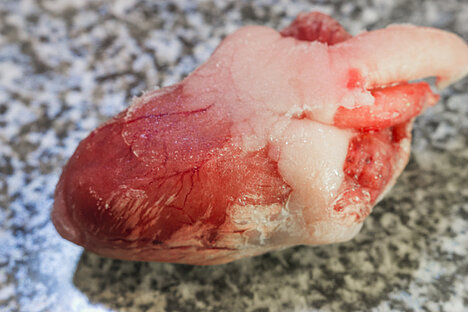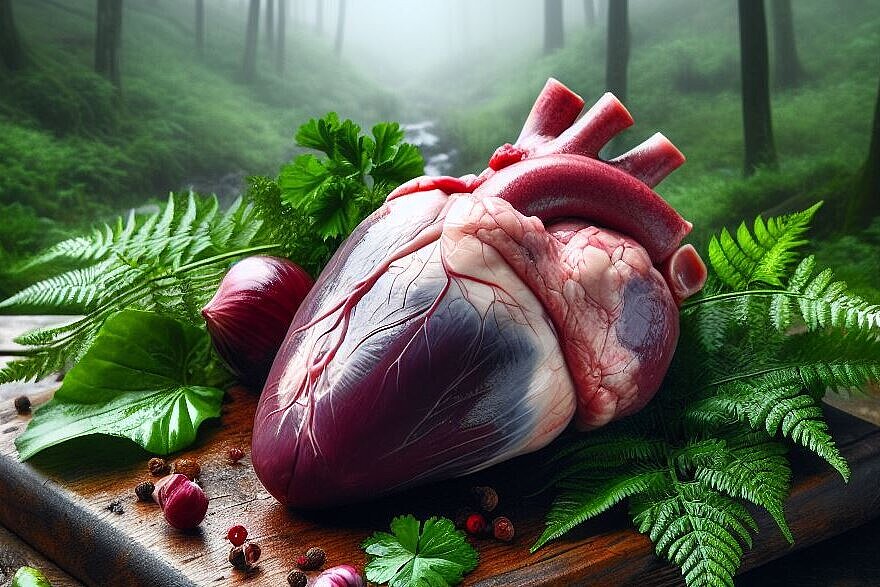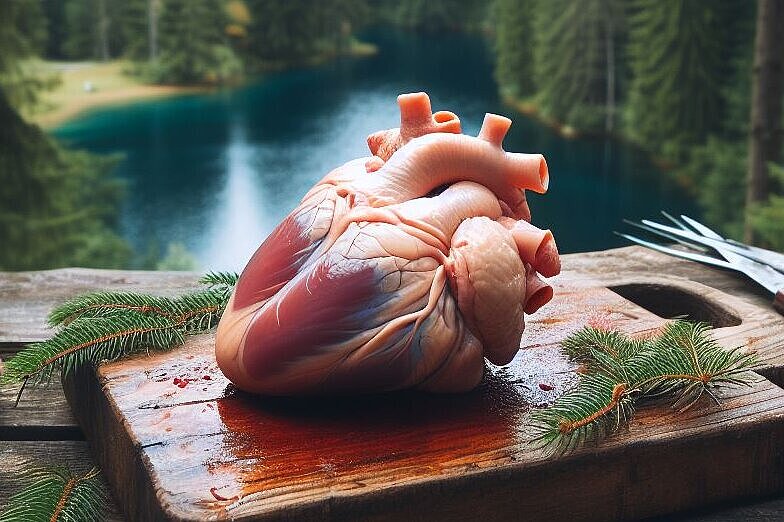Poultry hearts

Poultry hearts are a popular snack for many dogs. They are rich in protein, iron and taurine, an important nutrient for the heart and eyes. But are they also healthy and what is the best way to prepare them? In this article, you can find out more about the advantages and disadvantages of poultry hearts for your four-legged friend.
What are poultry hearts?
Poultry hearts are the heart muscles of chickens, turkeys or other poultry. They belong to the so-called offal or by-products, which are often regarded as a waste product of the meat industry. However, they have a high nutritional value and can be a useful addition to dog food.
What are the benefits of poultry hearts for dogs?
Poultry hearts have several benefits for dogs:
- They are a good source of high-quality protein, which is important for muscle building and cell regeneration.
- They contain a lot of iron, which is responsible for the formation of red blood cells and the transportation of oxygen in the blood.
- They provide a lot of taurine, which can compensate for a deficiency, especially in large dogs. Taurine is important for heart and eye function and can protect against heart disease and cataracts.
- They are tasty and can be used as a treat or reward during training.
What are the disadvantages of chicken hearts for dogs?
Poultry hearts also have some disadvantages for dogs:
- They can contain bacteria or parasites that can cause diarrhea or vomiting. They should therefore always be thoroughly boiled or frozen before feeding them to dogs.
- They can trigger allergies or intolerances if the dog is sensitive to poultry. In this case, other types of meat should be used.
- They can lead to obesity or nutrient imbalances if they are fed in excessive quantities. Offal should only make up about 10 % of the daily ration.
How are poultry hearts prepared for dogs?
Poultry hearts can be fed raw or cooked. However, they should always be frozen raw beforehand (at least 24 hours at -18°C) to kill any germs. When cooked, they should only be boiled briefly in water without salt and spices (approx. 10 minutes) so that they do not become too dry.
You can leave the chicken hearts whole or cut them into small pieces (especially for small dogs). However, care must be taken to ensure that no rings of large blood vessels remain attached to the hearts. These can become wrapped around the dog's tongue and lead to choking.
Poultry hearts can be fed on their own or mixed with other food (e.g. vegetables or rice). However, you should always make sure that the dog has enough water available.
Poultry hearts are heart muscles from poultry such as chickens or turkeys. They are a good source of high-quality protein, iron and taurine. Poultry hearts can be tasty and serve as a treat or reward. However, they can contain bacteria and cause allergic reactions. They should always be well cooked or frozen and should only be fed in limited quantities.
If you notice any signs of hypersensitivity or poisoning in your dog, you should see your vet immediately. We are not a substitute for a vet, but we try to be as accurate as possible. Every dog reacts differently and we recommend you get a second opinion or consult your vet if in doubt.
Stay healthy and take good care of your four-legged friend!😊
Similar to Poultry hearts
Duck heart is a so-called offal, i.e. an organ of the animal. It is part of the muscle meat and is therefore rich in protein, iron and other minerals. Duck heart has a high content of taurine, an...
Goose hearts are, as the name suggests, the hearts of geese. They belong to the so-called offal or offal by-products that are produced during the processing of poultry. Goose hearts are rich in...
Chicken hearts are the muscles that pump blood through the poultry's body. They belong to the so-called offal or by-products and are often referred to as offal. However, this does not mean that they...
Quail hearts, as the name suggests, come from quails, small wild or domestic birds that are bred for their meat and eggs. Like other organs, quail hearts are rich in nutrients. They provide a...



